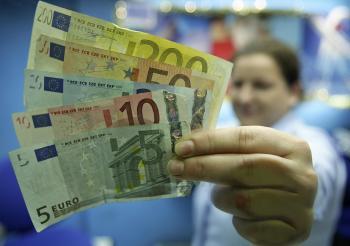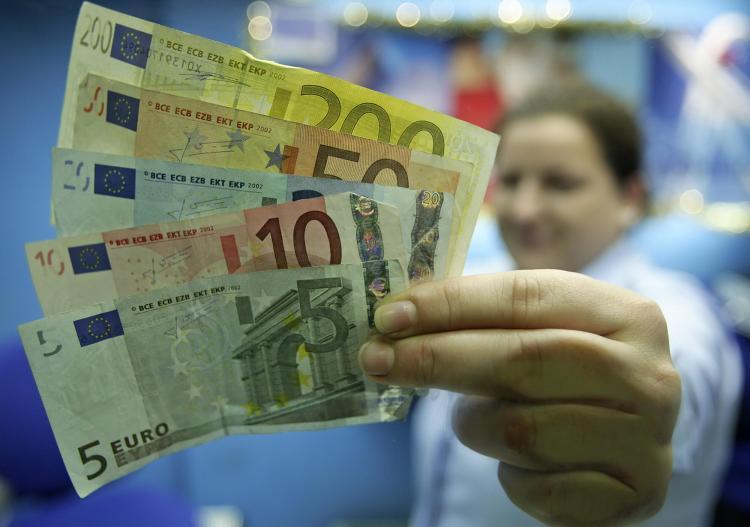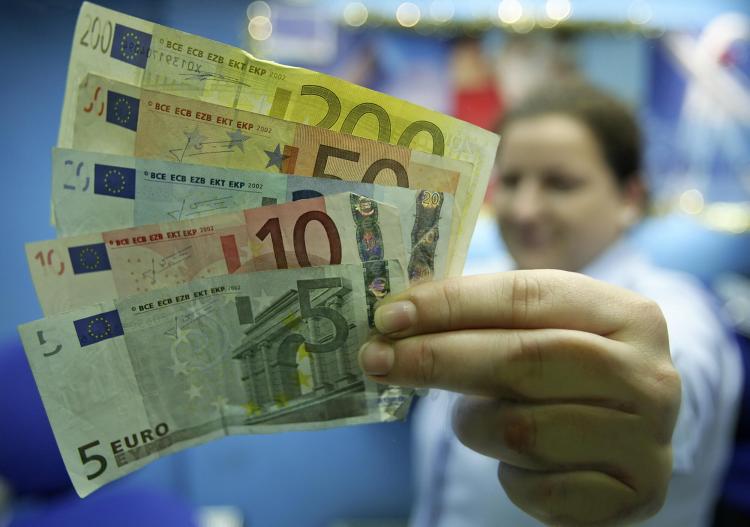WASHINGTON—The euro is experiencing its greatest uncertainty since the currency’s inception in 1999. When compared to the greenback, the euro’s decline began in earnest on Dec. 6, 2009, when it started to slide against the dollar, and by early February 2010, it had lost roughly 9.3 percent of its value, an enormous amount for a currency.
In 2008, analysts predicted a glorious future for the euro—on July 14, 2008, the euro to dollar exchange rate reached its highest rate of 1.59. But since that day, the euro has been steadily declining as economic uncertainty in the Eurozone has become more pronounced than that in the United States.
Conflict in the Eurozone
A breakup of the euro appears remote at best, although it has been addressed on and off behind closed doors. But a return to each nation’s old currencies could have detrimental effects as interest rates probably would rise, increasing the fiscal deficit in many nations and possibly bankrupting several countries.
Greece, the weakest link in the euro-denominated zone, was taken to task during an early February European Union finance ministers meeting in Brussels. The demand for austerity is growing more vocal, as Greece increasingly depends on its fellow Eurozone countries.
If it were just Greece, the larger and wealthier Eurozone members could cover its debts, but several other countries, namely Spain, Portugal, Ireland, and Italy, seem also to be in a fiscal bind.
Analysts agree that Spain would be a much larger headache for the Eurozone to cover, as it represents a little less than one fifth of the region’s GDP, while Greece is only a drop in the bucket.
Spain faces increasing debt, unprecedented unemployment, and flight of foreign investments—as jobs that were outsourced to Spain are now leaving for Eastern Europe, India, and China.
Euro’s dilemma
Albert Edwards, chief strategist at French banking giant Société Générale, said recently that it is just a matter of time before the Eurozone disintegrates.
Paul R. Krugman, an economist who won the 2008 Nobel Memorial Prize in Economics, disagrees. He asked in a January article, “Was the euro a mistake? There were benefits—but the costs are proving much higher than the optimists claimed. On balance, I still consider it the wrong move, but in a way that’s irrelevant: it happened, it’s not reversible, so Europe now has to find a way to make it work.”
Without the Eurozone currency, European companies may find their products too expensive and uncompetitive with products produced in other nations.
But a declining euro will make European exporters more competitive as European goods become cheaper. But it will also affect companies’ buying power, as they would have to spend more to buy raw materials or supplies when purchasing from outside the Eurozone.
“Once economic activity slows down as a result of the loss of competitiveness that stems from foreign exchange rates, the recovery process in the ‘real’ economy will be slow,” suggested José Ignacio Galán, director at Spain’s University of Salamanca, in a Knowledge @ Wharton (KW) article.
Some argue that a strong euro in the past had a detrimental effect on industries, such as the automotive, aerospace, and defense industries. Sales of BMWs, Volkswagens, Mercedes and other cars—unless produced outside of the Eurozone—became too expensive for global consumers.
While some European experts despair over a rising euro, others, including Mauro Guillén, director at the Wharton Lauder Institute, see a silver lining.
“The net effect is beneficial since a strong currency reduces inflation and increases the buying capacity of corporations,” said Guillén in the KW article.
Pros and cons of the Eurozone
“A one-size fits all monetary policy doesn’t give the member countries the flexibility needed to stimulate their economies,” said Bryan Rich, paraphrasing economist Milton Friedman in an article on the TradersLog Web site.
Rich indicated that common currency is strangulating these countries and the poorer member countries are often defenseless. The dilemma is that although each nation prescribes to the same currency, its fiscal policy, including preparing budgets, taxes, and government spending, is the responsibility of the respective country.
The European Union, under its Growth and Stability Pact, set two requirements: Government debt may not exceed 60 percent of GDP, and government spending may not be above 3 percent of GDP. The rules address inflationary fears, but disregard almost all other factors.
Most of the members have ignored government debt and federal spending, and as a result, some are facing problems of epic proportions. Italy and Greece’s debts are almost double the EU criteria.
Several experts, including Krugman, suggest that EU members give up sovereignty and become one nation, such as the United States. They tend to agree that richer nations will refuse to support poorer nations, which go on spending sprees and ignore sound fiscal policies.
“Political unity can pave the way for monetary unity. Monetary unity imposed under unfavorable conditions will prove a barrier to the achievement of political unity,” said Rich, quoting Milton Friedman in his article.
The steps toward a unified European currency were first laid in 1951, when six European countries signed the Paris Treaty, establishing the European Coal and Steel Community. In 1957, these countries signed the Treaties of Rome, creating the European Economic Community.
On Jan. 1, 1999, the euro was introduced as e-money (electronic currency) and on Jan. 1, 2002, the euro officially became a valid currency for 11 countries. Within about four months, all countries had phased out their internal currencies.






